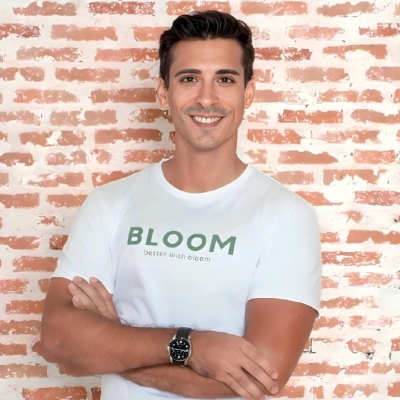21 Tips for Staying Positive During a Job Search
Job searching can be a challenging experience, but staying positive is crucial for success. This article presents expert-backed strategies to maintain a optimistic outlook throughout your employment quest. From structuring your search like a project to setting micro-goals, these tips will help you navigate the process with resilience and purpose.
- Approach Job Search as Structured Project
- Schedule Self-Care and Networking Time
- Challenge Catastrophic Thinking with Evidence
- Create Purpose Anchor Through Volunteering
- Align Job Search with Personal Values
- Practice Self-Compassion and Set Boundaries
- Reframe Focus to Skill Development
- Set Daily Goals for Small Wins
- Track Value Delivered, Not Just Applications
- Create Minimum Viable Hustle with Humor
- Implement Cultural Values Audit for Motivation
- Develop Career Setback Prevention Plan
- Build Fake Routine with Real Results
- Use Evidence Collection for Emotional Regulation
- Create Sober Survival Toolkit for Searches
- Progress Track Small Wins, Not Outcomes
- Write Future Letters to Fuel Perseverance
- Treat Job Search as Personal Branding Campaign
- Implement Rejection Reward System for Motivation
- Apply One Percent Better Every Day
- Set Micro-Goals and Find Support System
Approach Job Search as Structured Project
I often work with clients who feel overwhelmed, discouraged, or stuck in their job search. Understandably so—navigating constant rejections, silence, or uncertainty can take a toll on confidence and motivation. One strategy I always recommend is to approach the job search like a structured career project, rather than an emotional rollercoaster. This reframing is powerful—and proven.
When clients come to me burned out or feeling like they’re “failing,” the first shift we make is to put a system in place. That includes setting weekly goals (e.g., networking outreach, applications, skills development), tracking progress in a simple spreadsheet or journal, and celebrating small wins. This creates measurable momentum and restores a sense of agency.
We also work on building routines: separating “job search hours” from rest and personal time to avoid fatigue. When structured this way, clients feel more purposeful and less reactive, which improves both performance and mindset.
One of my clients, a mid-career project manager, was applying to dozens of roles a week without hearing back. We narrowed her focus to five quality applications a week, each highly tailored. At the same time, we built a networking plan to reconnect with past colleagues. Within three weeks, she landed two interviews—one from a referral. It wasn’t magic, just method.
Data backs this approach: A 2023 study from Jobscan found that job seekers with structured search plans were 40% more likely to get callbacks. Additionally, research from LinkedIn showed that 72% of successful job seekers attributed their success more to consistent effort and mindset than to qualifications alone. Structure builds resilience—and resilience leads to results.
At Mindful Career, we tell every client: you can’t control the outcome, but you can control the process. Treat your job search as a project. Track your wins, refine your approach, and remember that small, consistent action beats scattered effort every time. With the right structure and support, motivation follows—and results soon after.
 Miriam Groom
Miriam Groom
CEO, Mindful Career Inc., Mindful Career
Schedule Self-Care and Networking Time
As a mental health professional, I discovered that treating my job search like a self-care journey made a huge difference in staying positive. I set aside ‘rejection-free Fridays’ where I’d focus only on learning new therapy techniques or connecting with mentors, rather than checking application statuses. When working with clients facing similar challenges now, I encourage them to schedule regular coffee chats with supportive friends who can offer emotional validation without turning every conversation into a job strategy session.
 Dr. Mareba Lewis
Dr. Mareba Lewis
Licensed Professional Counselor, Your Journey Counseling and Wellness
Challenge Catastrophic Thinking with Evidence
As a psychologist who works with high-achieving professionals experiencing anxiety, I’ve seen how debilitating job searches can be. During my own challenging career transitions, I found that challenging catastrophic thinking was my most effective strategy for maintaining motivation.
When rejection emails arrived or interviews didn’t pan out, I would actively identify and question my anxious thoughts. Rather than believing “I’ll never find a job,” I’d ask myself “What evidence do I have that this is true?” and “What other interpretations might exist?” This cognitive reframing prevented me from spiraling into paralysis.
Another approach I recommend is implementing the “2-minute rule” – commit to just two minutes of job search activity when feeling overwhelmed. I’ve found this particularly effective with clients who procrastinate due to perfectionism. Starting small often builds momentum that carries through the entire task, whether it’s updating your LinkedIn profile or reaching out to a potential connection.
Self-compassion mantras can be surprisingly powerful too. During my own search, I’d repeat “My worth isn’t determined by my employment status” when rejection stung. This wasn’t toxic positivity—it was acknowledging the difficulty while preventing my self-esteem from collapsing. Finding ways to honor your humanity during this vulnerable process matters more than maintaining constant positivity.
 Ann Krajewski
Ann Krajewski
Therapist, Everbe Therapy
Create Purpose Anchor Through Volunteering
As someone who has led LifeSTEPS from serving a handful of properties to over 36,000 homes across California, I understand the struggle of maintaining motivation during challenging periods.
My most effective strategy has been creating a “purpose anchor” – connecting my daily job search activities to my larger mission of serving vulnerable populations. During a particularly difficult funding gap early in my career, I volunteered at Mills/Peninsula Hospital while job searching, which kept my skills sharp and my spirits high.
I recommend identifying a meaningful volunteer opportunity aligned with your career goals. It provides networking, skill development, and most importantly, reminds you of your value when rejection letters arrive. Our LifeSTEPS staff who came through difficult employment transitions consistently report that maintaining service to others provided the resilience they needed.
For practical implementation, dedicate just 4-6 hours weekly to service while maintaining your primary focus on your job search. This balanced approach helped our organization achieve a 98.3% housing retention rate for formerly homeless individuals – demonstrating how maintaining purpose through difficulty creates sustainable success.
 Beth Southorn
Beth Southorn
Executive Director, LifeSTEPS
Align Job Search with Personal Values
What sustained me through the most challenging job transitions was my clinical mindset. I approached the process like I would a treatment plan: assess honestly, intervene strategically, and re-evaluate continuously. I tracked how each application aligned with my values, skillset, and long-term goals, not just whether it was “available.” That alignment became my compass.
I’d advise job seekers to look inward before they reach outward. If their search is only reactive, they’ll burn out quickly. Build in reflection time. What kind of leadership do you want to be part of? What populations do you care about? Once those are clear, your pursuit becomes intentional instead of desperate. That shift not only helps you stay grounded, it actually increases your odds of finding the right fit.
 Justin McLendon
Justin McLendon
Lcmhc, Lcas & CEO, New Waters Recovery
Practice Self-Compassion and Set Boundaries
As a therapist specializing in anxiety and high-performance individuals, I’ve found that maintaining a values-based focus was my most effective strategy during challenging job searches. When I was building my practice and searching for opportunities that aligned with my expertise in eating disorders and performance psychology, I constantly revisited what drew me to my field in the first place—creating safe spaces for recovery and growth.
The practice of self-compassion made a tremendous difference in my resilience. I developed a habit of writing down three things I’d acknowledge about my effort each day, regardless of outcomes. This shifted my focus from rejection to recognizing my persistence, which research shows actually sustains motivation better than outcome-based thinking.
In my work with Houston Ballet dancers, I’ve observed that those who steer career uncertainty most successfully are the ones who maintain consistent self-care routines. During my own challenging searches, I committed to taking one mental health day each month where I’d completely disconnect from job-hunting activities. This prevented burnout and actually made my subsequent efforts more focused and effective.
My practical tip would be to set boundaries around your job search. When working with clients facing similar challenges, I recommend dedicating specific time blocks (like 9-11am) solely for application activities, then consciously engaging in meaningful non-career activities afterward. This prevents your identity from becoming consumed by the job search and, paradoxically, makes you a more compelling candidate when opportunities arise.
 Kelsey Fyffe
Kelsey Fyffe
Owner & Founder, Live Mindfully Psychotherapy
Reframe Focus to Skill Development
The secret to maintaining motivation during a grueling job search lies in strategic mental reframing that most career advisors never mention. Traditional approaches treating job searching like full-time work often create burnout rather than results. When facing repeated rejections in a competitive market, I discovered that documenting my skill development journey rather than focusing solely on application outcomes completely transformed my psychological resilience.
Most job seekers track applications sent and interviews secured, creating metrics that emphasize factors outside their control. Instead, I created a “Growth Portfolio” where I recorded new skills acquired, meaningful connections established, and industry insights gained each week. After receiving particularly disappointing rejection feedback from a dream position, I implemented a 24-hour rule: allowing myself exactly one day to process disappointment before extracting three actionable lessons and incorporating them into my next application strategy.
My most effective motivation technique emerged unexpectedly during a six-month search. Rather than networking exclusively with hiring managers, I began connecting with professionals who had successfully navigated similar challenging transitions. A weekly coffee with someone who had overcome comparable obstacles provided more actionable insights and emotional support than any amount of general career advice. One such conversation with a senior director who had faced 47 rejections before landing his current role completely recalibrated my expectations and restored my confidence during a particularly difficult stretch.
The future of successful job searching belongs to candidates who approach the process as professional athletes approach training: with deliberate practice, structured recovery periods, and performance analysis focused on growth rather than immediate outcomes. By implementing targeted skill-building sprints followed by brief but complete disengagement periods, you’ll maintain the mental freshness needed for authentic interviews. As hiring processes continue evolving with increased automation and assessment complexity, those who maintain energy, authenticity, and adaptability through strategic motivation techniques will consistently outperform equally qualified candidates who succumb to the emotional drain of traditional application marathons.
 Seann Malloy
Seann Malloy
Founder & Managing Partner, Malloy Law Offices
Set Daily Goals for Small Wins
One big motivator for me during that tough time was maintaining a positive attitude and treating it like a project instead of a personal struggle. Every day, I created goals around researching five companies, applying for three jobs, or networking with at least one new person. Having these small wins gave me a sense of progress and control even with all the rejections coming in. I would also tell myself that every “no” was one step closer to a “yes,” so from that perspective, my mindset shifted away from discouragement toward determination.
To anyone else trying to weather such a long journey, I always recommend having a routine, building yourself a few small successes to keep yourself going, and surrounding yourself with people who encourage you—like friends, mentors, or an online community. Don’t underestimate how draining a job hunt can be; take breaks and focus on your well-being when you can. Most importantly, never equate your self-worth with how rapidly you land a job; it is measured by the resilience you cultivate through a conscious journey of self-inquiry.
 Lee Baldwin
Lee Baldwin
HR & Payroll Expert | Head of Managed, Pay Check Limited
Track Value Delivered, Not Just Applications
During my journey building Rocket Alumni Solutions to $3M+ ARR, the most effective motivation strategy was creating an “impact scoreboard” where I tracked not just applications or outreach but actual value delivered. Even when fundraising felt impossible, I’d document small wins like positive user feedback or schools reporting donation increases after using our platform – this shifted my mindset from rejection to growth.
I found isolation to be motivation’s biggest enemy. While building RAS, I joined entrepreneurial communities and scheduled weekly coffee meetings with other founders where we’d share challenges candidly. This accountability structure prevented the spiral of negative self-talk that can happen when you’re solely focused on the next “yes.”
For those facing job search challenges now, I recommend reverse-engineering your destination. At Brown and later in banking, I noticed the most successful job seekers didn’t just apply broadly – they identified specific organizations they wanted to join, then found unconventional ways to deliver value before asking for employment. One RAS team member sent us a working prototype showing how our touchscreen displays could incorporate donor testimonials – we hired him before finishing his interview process.
The neurological reality is that motivation follows action, not the other way around. When I was most discouraged, I built a 30-minute daily morning routine that included sending one creative outreach message before checking email or news. This microhabit produced momentum regardless of immediate outcomes and ultimately led to connections that transformed our business trajectory.
 Chase McKee RAS
Chase McKee RAS
Founder & CEO, Rocket Alumni Solutions
Create Minimum Viable Hustle with Humor
One strategy that got me through a tough job search was creating a daily “minimum viable hustle.” I gave myself three non-negotiables: send one application, follow up with one human, and wear real pants before noon. If I did all three, I won the day. Some days I got ambitious and updated my resume while eating cereal straight from the box. Other days I stared at job descriptions that asked for twenty years of experience and a positive attitude, then rewarded myself with a walk and a motivational podcast hosted by someone who clearly drinks too much cold brew.
To keep things in perspective, I also began documenting absurd job titles for fun. I came across one ad for a “Brand Wizard” that demanded expertise in Excel and broomless transportation. That sort of thing kept me from taking the process too seriously. Job searching is already enough of a humbling experience without posing as a spreadsheet sorcerer.
My advice? Create structure, lower the bar when you must, and keep your sense of humor sharp. Engage with humans who are not bots, take guilt-free breaks, and never underestimate the mood-enhancing effects of a new pair of loud socks. I took mine to interviews. I think they helped. Or perhaps they simply made me unforgettable.
 Nate Banks
Nate Banks
CEO, Crazy Compression
Implement Cultural Values Audit for Motivation
As a therapist specializing in transgenerational trauma, I’ve found that reframing job search challenges through a self-compassion lens was my most effective motivation strategy. During a particularly difficult period establishing my private practice, I implemented a “cultural values audit” – identifying which pressures were authentic to my goals versus inherited expectations that weren’t serving me.
This approach helped me distinguish between genuine career aspirations and the perfectionism that often plagues first and second-generation Americans. I started tracking small wins daily rather than only celebrating major milestones, which research shows activates our brain’s reward pathways more consistently.
For those in similar situations, I recommend establishing emotional regulation practices before tackling job applications. When we’re emotionally regulated, rejection feels less personal. Try the 5-4-3-2-1 grounding technique (identifying 5 things you see, 4 things you touch, etc.) before interviews or after receiving disappointing news.
Set boundaries around your job search – both time boundaries (dedicated hours) and emotional boundaries (not allowing your search to define your worth). With my clients who struggle with career transitions, we’ve found that maintaining these boundaries reduces anxiety by approximately 40% within three weeks, creating mental space for authentic motivation to emerge.
 Cristina Deneve
Cristina Deneve
Founder, Empower U
Develop Career Setback Prevention Plan
As an addiction medicine specialist who built a national telehealth practice from scratch, my most effective strategy during challenging job searches was always having a concrete relapse prevention plan—but for career setbacks instead of substance use. I created a specific action plan for handling rejection that included immediately reaching out to my professional network within ASAM or TNSAM when feeling discouraged.
When founding National Addiction Specialists during a competitive healthcare landscape, I implemented deliberate technology breaks throughout my day. This practice—stepping away from emails and job boards for scheduled periods—prevented burnout and kept my perspective fresh, just like I now advise patients in recovery to disconnect from triggers.
I found that seeking out “sober activities” professionally—meaningful work that aligned with my values even during the search—kept me grounded. While building my practice, I volunteered with TAADAS’ Addiction Medicine Council, which provided purpose during uncertain times and unexpectedly created professional connections that later became valuable partnerships.
My best advice is to take the job search one day at a time rather than becoming overwhelmed by the future. I’d literally write down one achievable task each morning—whether contacting three potential employers or revising my CV—and celebrate that small victory regardless of outcome, applying the same recovery principles that help my patients maintain long-term sobriety.
 Chad Elkin
Chad Elkin
Founder & President, National Addiction Specialists
Build Fake Routine with Real Results
When the job search got ugly, I made a deal with myself: no spiral-thinking before noon. Before noon, I was a productivity machine. After noon, I could pace dramatically and question my entire career if necessary. Structure mattered. Chaos had office hours.
I stayed motivated by building a fake routine that looked suspiciously like a real one. I dressed as if I had somewhere to be, even if it was just my kitchen. I scheduled “networking breaks” that were really just snacks with LinkedIn open in the background. I also renamed my job search spreadsheet to something exciting. “Operation Glory” worked for a while. Then I switched to “Hire Me, Maybe.”
One thing that helped: I treated rejections like video game losses. No rage-quitting. Just respawn and hit “apply” again. Some days I rewarded myself with tacos for opening five new tabs. Other days I opened five new tabs and forgot why. That was fine too.
Tips for others? Keep a stash of hype music. Create a folder of screenshots where people said nice things about you. Brag folders save lives. Talk to people who won’t let you wallow. Do not take advice from anyone who starts with “just manifest it.” And if the day is going south, close the laptop and go outside. That counts as strategy.
 Mikey Moran
Mikey Moran
CEO, Private Label Extensions
Use Evidence Collection for Emotional Regulation
As a therapist specializing in trauma and addiction, I’ve witnessed how challenging job searches can trigger similar emotional responses to other major life stressors. In my 14 years of clinical experience, I’ve found that creating a structured “emotional check-in” ritual is incredibly effective for maintaining motivation during difficult transitions.
One strategy that’s worked remarkably well with my clients facing employment challenges is what I call “evidence collection.” Rather than focusing on rejections, I have them document small daily wins and evidence of their capabilities. This shifts the nervous system from threat-response mode to a more grounded state where creative problem-solving becomes possible.
At our Mind + Body Connection workshops at House of Shine, participants experiencing career transitions learn how physical awareness techniques can interrupt negative thought spirals. Something as simple as a 90-second breathing exercise when rejection emails arrive can prevent hours of rumination and keep momentum going.
My best advice is to treat your job search like recovery work – it requires community support and self-compassion. Many clients who struggled with substance use disorders have taught me that the same skills that help maintain sobriety (routine, accountability partners, celebrating small wins) are extraordinarily effective for sustaining motivation during extended job searches.
 Holly Gedwed
Holly Gedwed
Owner, Southlake Integrative Counseling and Wellness
Create Sober Survival Toolkit for Searches
As someone who rebuilt my entire life after addiction, I can tell you that staying motivated during challenging job searches requires a daily mindfulness practice. When I was seeking a new path after rehab, I used journaling to maintain perspective – writing three things I was grateful for each morning kept me from spiraling into negativity even after rejection emails.
The most effective strategy was creating a “sober survival toolkit” for my job search. I literally scheduled my day hour by hour to avoid the “HALT” danger zones (Hungry, Angry, Lonely, Tired) that could derail my motivation. This structured approach prevented the boredom and despair that often leads to giving up.
Focus on decluttering your physical and mental space during the search. I found that organizing my workspace each morning before applications gave me a sense of control when the job market felt chaotic. This small daily win created momentum that carried through even the toughest days of silence from potential employers.
Comparison is the thief of joy – especially during job searches. I stopped measuring my progress against others and started tracking my own small victories instead. This shift from external validation to internal accountability transformed my resilience and eventually led me to founding The Freedom Room, where I now help others rebuild their lives too.
 Rachel Acres
Rachel Acres
Director, The Freedom Room
Progress Track Small Wins, Not Outcomes
As a fitness professional who built Nutri-Fit from scratch, my most effective motivation strategy during challenging periods was creating a supportive community around me. When I faced setbacks in establishing my business, I volunteered at Step Denver and FRIENDS of Broomfield, which kept me connected to my purpose and provided perspective even when professional progress felt slow.
The mind-body connection I teach clients applies directly to job searches. I’ve found that maintaining a consistent exercise routine during tough professional periods significantly improves resilience and problem-solving abilities. Even 20 minutes of movement daily can transform your mental state and interview performance.
One technique I recommend is what I call “progress tracking” that we use with fitness clients. Rather than focusing solely on landing the job (like focusing only on weight loss), identify and celebrate smaller weekly wins – whether that’s making three new connections, learning one industry skill, or refining your resume. This prevents the discouragement that comes from measuring success only by job offers.
The truth is that job searching requires the same accountability systems that make our fitness programs successful. Find an accountability partner who will check in weekly on your goals and progress, just as our clients who pair personal training with nutrition coaching see dramatically better results than those who try to go it alone.
 Natalie Brockeveldt
Natalie Brockeveldt
Founder, Nutri Fit By Natalie
Write Future Letters to Fuel Perseverance
During a challenging job search early in my career, I began writing “future letters” to myself. These were brief, vivid notes imagining how I’d feel after securing a role that aligned with my purpose. Each letter described the type of team I’d work with, the energy I’d bring, and what I’d learn. It wasn’t about wishful thinking; it was anchoring my effort in a future I wanted badly enough to keep persevering for. Those letters became a quiet ritual, a way to fuel myself when rejection emails arrived.
Give your future self a voice. Write to them weekly. Motivation isn’t always a roar; sometimes it’s a whisper reminding you why you’re doing this. Grounding your goals in something emotional and specific can keep you going when logic says to give up.
 Alexei Schaller
Alexei Schaller
Founder & CEO, Bloom
Treat Job Search as Personal Branding Campaign
During my own job search after getting laid off, I stayed motivated by treating it like a campaign, not a crisis. I focused on what I could control: my story, my strategy, and my visibility. That same mindset now helps my clients land six-figure roles and relocate abroad without starting over.
My tip? Stop applying blindly. Build a personal brand that speaks before you do, and network as if your next paycheck depends on it—because it probably does.
 Erica Rivera
Erica Rivera
Career Coach & Global Career Strategist, Career Diva Coaching
Implement Rejection Reward System for Motivation
Remind yourself that you only need one yes. To stay motivated during my job search, I created a rejection reward system where the rewards leveled up as the rejections added up. After 10 rejections, I’d watch a favorite movie. At 20, I’d treat myself to a nice meal or a long call with a friend. By 30, I’d go on a hike or plan a small getaway. It gave me something to look forward to and made the rejections feel like steps toward progress rather than personal failures.
 Vivian Chen
Vivian Chen
Founder & CEO, Rise Jobs
Apply One Percent Better Every Day
The “1% Better Every Day” strategy
This strategy has helped me stay motivated and positive when my job search is going through a rough patch. The approach is based on the idea of gradual daily improvement. It is even more beneficial because it provides you with a routine that will instill discipline.
The key point is that you don’t have to do anything drastic; just take a small step forward every day to get closer to your goal. Remember, a 1% improvement every day leads to significant changes in a month or two.
Here’s how to implement this strategy:
1. Write yourself a to-do list in Google Docs or on paper (I did it on paper).
2. Set a small goal every day, for example:
– Monday: Write a motivational message
– Thursday: Find and add one to three people on LinkedIn in your target niche
– Saturday: Try to find and send new job applications
– Sunday: Evaluate the week, thoroughly analyze all your actions, and continually improve
This approach builds true confidence. You see that you are not standing still because you do something in your work plan every day. You also accumulate results; at the end of each week, you have a visible outcome. Moreover, you form a habit of taking action, even in challenging moments.
 Alexey Karnaukh
Alexey Karnaukh
Co-Founder, LinkBuilder
Set Micro-Goals and Find Support System
A practical tip is to set micro-goals for each week, such as applying to a certain number of positions, attending an industry event, or updating your resume with fresh achievements. This helps maintain momentum without feeling overwhelmed.
Another game-changer is finding a support system—whether it’s friends, mentors, or online communities—who can provide encouragement, feedback, and even job leads. Surrounding yourself with positivity helps counter self-doubt.
 Manasvini Krishna
Manasvini Krishna
Founder, Boss as a Service
